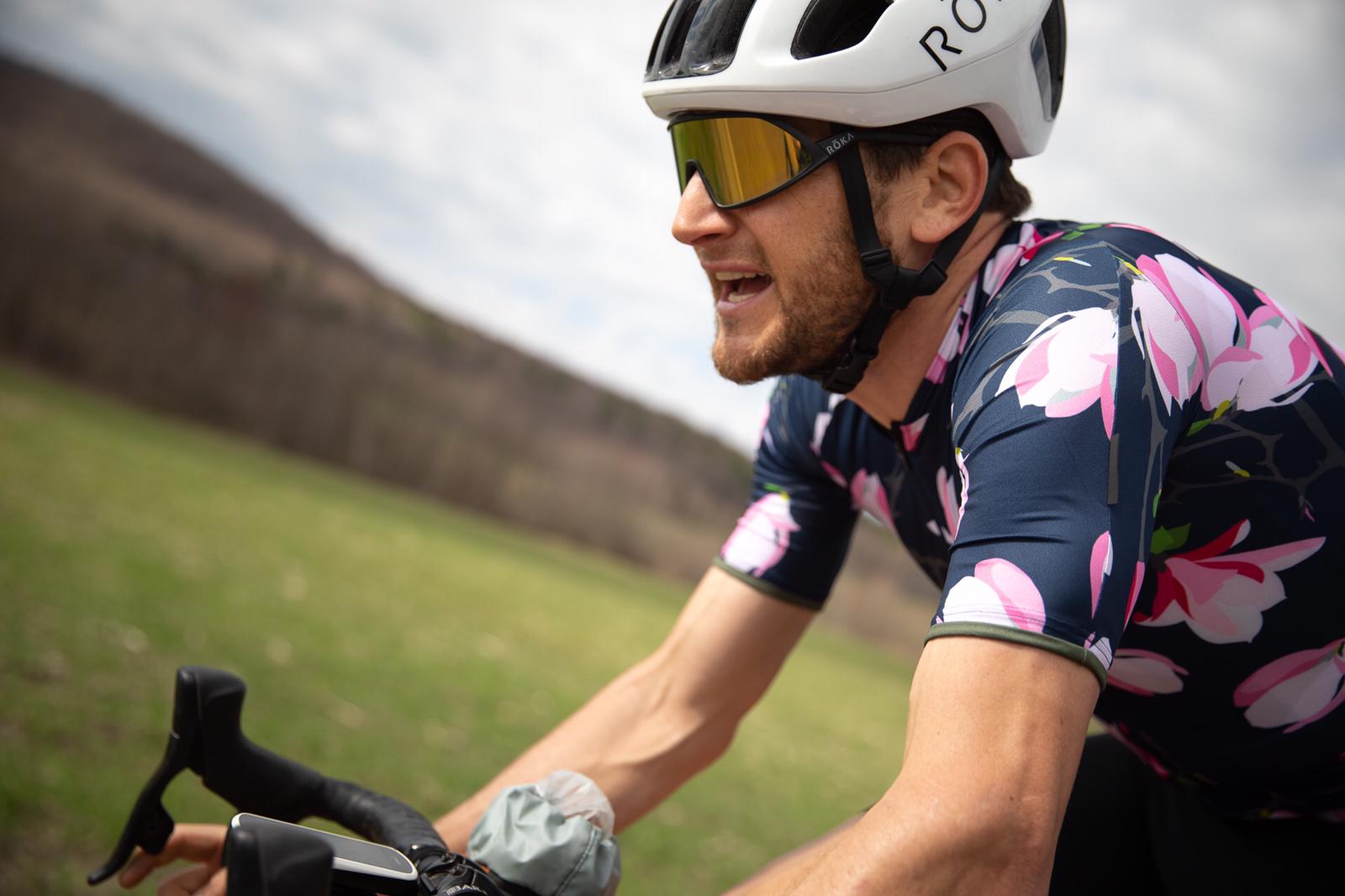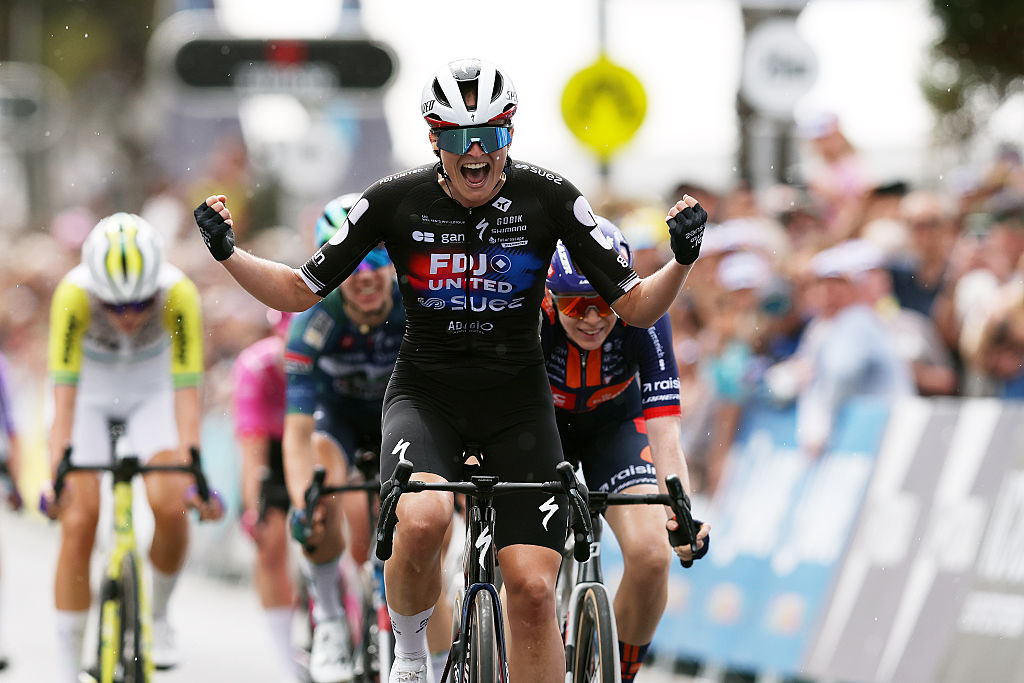Rooted Vermont returns: Mullets, hatchets, and endless gravel
Q&A with organisers Ted and Laura King on community spirit, fast vs slow, and pushing for gender parity

This weekend will see something of a gravel gathering up in Vermont, as nearly 1,000 riders take part in Rooted Vermont, the event set up and run by Laura and Ted King.
Ted is a former road racer who rode for Cannondale before deciding to hang up his WorldTour wheels in 2016, while Laura, herself a talented athlete, has held prominent roles at a number of brands in the outdoor industry. They met in California a few years back but when they decided to move to east, they found themselves with no excuse to ignore suggestions they should start their own gravel event.
Rooted Vermont kicked off in 2019 but, like most events, was stopped in its tracks by the pandemic last year. This weekend it’s back, and we caught up with Ted and Laura to find out more about what’s in store, how and why they do it, and why a mullet is the perfect metaphor for the whole event.
Cyclingnews: Hi guys, could you tell us about Rooted Vermont and how it came about?
Ted King: We started out in 2019 and had a successful first year, with nearly 600 people, which was a sell-out. We’re coming back from Covid and not running it last year, but we’re back now with a 900 sell-out. It’s a three-day event, a three-day party, kicking off on Friday night, then on Saturday, we have an expo day with all our sponsors, some shake-out rides, and pro panels, including a specific women’s forum. Then Sunday is race day.
The bigger genesis of it is… given our history in the sport, and the booming aspect of gravel, we had a lot of friends saying ‘hey, when are you going to create an event?' It was flattering, but it wasn’t until we moved from California to the east coast a few years ago that it made sense for us. Finding this community and feeling really (pun intended) rooted here, it was something that felt right.
CN: You’ve got 900 riders but how many could you have had if you could grant everyone a place?
The latest race content, interviews, features, reviews and expert buying guides, direct to your inbox!
Laura King: Well because of last year, we deferred everyone’s registration, then on top of that we were able to open a lottery for 250 additional spots, and we had 1000 entries. We’re nearly double from 2019 and we’re going to see how we can deliver on that. We’re being mindful of not wanting to lose our community feel, and we’re limited by our small town anyway, but as long as we can keep delivering a really good experience, we’ll see what growth is possible.
CN: What’s the women’s forum and where did that idea come from?
LK: It stemmed from our recent women’s clinic, where we hosted over 100 women to equip them with the skills and mindset to develop their gravel riding. On the expo day on Saturday, we have a keynote speaker who’s the chief business officer for Burton Snowboards and formerly one of the highest-ranking execs in cycling at Giant. Then we’ll have ‘genius hour’ groups, which are discussions steered by certain leaders, one of whom is Lauren Stephens, who won Unbound this year.
We have all these women with so much to offer but we also wanted it in a format where you’re getting to know other women and not just sitting there in an audience. Women are looking for more places to connect and we feel we can play a part in that.
CN: How many women have entered and, as a ratio, how does it compare to other events?
LK: We’re at 33 per cent women. Typical female participation is around 20 per cent, on the generous side. We’ve been working hard on it. I direct the race alongside my friend Kristen Motley and it’s an ambition of ours to have an equal start line. In fact, we’re hoping to make an announcement that we’ll soon be 50-50.
CN: Where are you trying to position Rooted Vermont on the gravel spectrum, in terms of being a fast race or a slow group ride?
LK: I would say we’re right in the middle. We coined the term ‘mullet protocol’ which means we’re just as much about the business in the front as the party in the back. We have a very competitive field but we also wait for and celebrate the very last finisher, and we put just as much energy into our after-party as we do the ride.
CN: What’s the route and the riding like?
TK: We have two routes, both named after local beers - one 48-miler called Little Sip, and an 82-miler called Sip of Sunshine. It’s almost like an arms race in gravel to make longer and longer and longer and longer events, but we’ve received a lot of praise for having attainable distances. There’s so much gravel in Vermont – probably more than paved roads. Most are in really good condition and are used by cars on a daily basis but we also have ‘class 4’, which is the categorization for unmaintained roads, which are really historic roads, and very beat up. That’s where a lot of the separation will take place. Oh, and it’s hilly. There’s no big extended climb but it’s just non-stop up and down.
CN: What bike set-up does it call for?
TK: The vast majority is on this fast gravel, so if you were a really adept racer you might just get by on a road bike with really wide tyres – 34 slicks might be ok. Most people, myself included, would probably choose a gravel bike with 35-40 tyres. It’s a toss-up between slicks and knobbies but it goes back to your skill on the bike. Otherwise, a pretty wide gear range because the hills are relatively short and steep.
CN: Any big names to look out for in the field?
TK: Ian Boswell is a big one. He won Unbound recently. Adam Roberge is a road pro turned gravel pro, Mat Stephens is another former Unbound winner.
LK: I’d say the women’s field is even more competitive. We have Lauren Stephens, her teammate on TIBCO, Emma Langley, Moriah Wilson, who was third at BWR, Jess Cerra… loads.
CN: Is there a prize purse, or something a bit more quirky?
TK: I’m a firm believer in having cool unique fun prizes, which are meaningful than a cheque, so we worked with an artisan woodworker here in Vermont and he has created these beautiful wooden hatchets.
LK: They’re gorgeous. We also have bottles of maple syrup from our town. We’re really sticking with the Vermont theme for the prizes.
CN: Where does the event sit in your lives and careers? Is this a labour of love for you guys or a more full-on business venture, or somewhere in the middle
LK: This is 50 per cent of my full-time job, so if it was only a labour of love it probably wouldn’t be worth my time and energy. I come from a background in sales and marketing within the cycling and outdoor industries and we’ve always said that if we’re going to do this, we’re going to do it the right way. I work on this all year long and strive to make it as professional an operation as possible. We care about our community, and we’re very plugged in to the community but, at end of the day, we put a lot of time in so we want to make it a profitable endeavour.
CN: We spoke with Ted last year for a piece about the future of gravel. How has gravel changed since then, and has it had a chance to? How has the pandemic impacted the scene and are we any closer to knowing what gravel is?
TK: That's still the big question. 2020 was the year that was not, and coming back in 2021, Unbound really kicked it off in a big way. That was seemingly as competitive as ever. From the perspective of the front of the race, it was cut-throat, it was hard, it was tactical. Belgian Waffle Ride was no different. Competition is going to increase, but that represents a small fraction of people who are at gravel events. I think we’re still on the early side of the gravel curve. Since the pandemic, so many people have purchased bikes who didn’t ride before, and they’re now hearing about this aspect of cycling. That’s why we embrace this mullet protocol. It’s human nature to be competitive so that aspect will take care of itself whereas being welcoming, hospitable, community-oriented… I think they’re the things that will help certain events live on well into the future.
Patrick is a freelance sports writer and editor. He’s an NCTJ-accredited journalist with a bachelor’s degree in modern languages (French and Spanish). Patrick worked full-time at Cyclingnews for eight years between 2015 and 2023, latterly as Deputy Editor.

